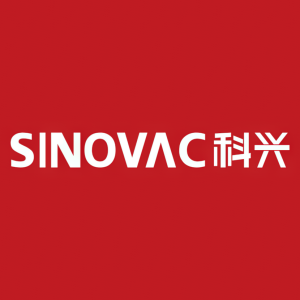Beijing Fourth Intermediate People’s Court Issues Judgement Against Sinobioway Medicine and Mr. Aihua Pan
Sinovac Biotech Ltd. (NASDAQ:SVA) announced that the Beijing Fourth Intermediate Court found Sinobioway Medicine and Mr. Aihua Pan liable for torts and breaches of fiduciary duty. The court ruling stemmed from a 2018 complaint by Sinovac Hong Kong concerning an attempt to take control of Sinovac’s facility, which led to product destruction valued at RMB15.404 million. The ruling allows for an appeal within 15 days by the defendants or 30 days by the plaintiff. Sinovac continues to focus on developing and selling vaccines in China and internationally.
- Court ruling in favor of Sinovac could enhance shareholder confidence.
- Potential for financial recovery from the liable parties for product destruction.
- Product destruction valued at RMB15.404 million due to disruptive actions of defendants.
- Ongoing legal proceedings may introduce uncertainty regarding future operations and financial performance.
BEIJING--(BUSINESS WIRE)--Sinovac Biotech Ltd. (NASDAQ:SVA) (“Sinovac” or the “Company”), a leading provider of biopharmaceutical products in China, announced today that the Fourth Intermediate People’s Court of Beijing (“Beijing Fourth Court”) issued a judgement holding Sinobioway Bio-medicine Co., Ltd. (“Sinobioway Medicine”) and Mr. Aihua Pan (collectively, “the Defendants”) liable for torts and breaches of shareholder fiduciary duty.
The judgment follows a complaint filed by Sinovac Biotech (Hong Kong) Ltd. (“Sinovac Hong Kong”) on May 16, 2018 against Sinobioway Medicine, Mr. Aihua Pan, and Shandong Sinobioway Biomedicine Co., Ltd. to hold them jointly liable for the offenses they committed during an attempt to take physical control of Sinovac’s Shangdi facility in Beijing on April 17, 2018.
The Beijing Forth Court found that the Defendants disrupted Sinovac Beijing’s production by cutting power, which resulted in Sinovac Beijing being forced to destroy the affected products with a total value of RMB15.404 million. The Court’s judgement holds that the Defendants breached their shareholder fiduciary duties under the PRC Company Law and are liable for Sinovac Beijing’s losses caused by their disruptive actions.
The Beijing Fourth Court’s decision may be appealed within 15 days from the receipt of the ruling by the defendants or within 30 days by the plaintiff, respectively .
About Sinovac
Sinovac Biotech Ltd. is a China-based biopharmaceutical company that focuses on the research, development, manufacturing and commercialization of vaccines that protect against human infectious diseases. Sinovac’s product portfolio includes vaccines against enterovirus71 (EV71), hepatitis A and B, seasonal influenza, Quadrivalent Influenza vaccine (“QIV”), H5N1 pandemic influenza (avian flu), H1N1 influenza (swine flu), varicella vaccine and mumps. Healive, the hepatitis A vaccine manufactured by the Company, has passed the assessment under WHO prequalification procedures in 2017. The EV71 vaccine, an innovative vaccine developed by Sinovac against hand foot and mouth disease caused by EV71, was commercialized in China in 2016. In 2009, Sinovac was the first company worldwide to receive approval for its H1N1 influenza vaccine, which it has supplied to the Chinese Government’s vaccination campaign and stockpiling program. The Company is also the only supplier of the H5N1 pandemic influenza vaccine to the government stockpiling program. The Company is developing a number of new products including a Sabin-strain inactivated polio vaccine, pneumococcal polysaccharides vaccine, and a SARS-CoV-2 (commonly referred to as COVID-19) vaccine. Sinovac primarily sells its vaccines in China, while also exploring growth opportunities in international markets. The Company is registering its products in over 30 countries outside of China. For more information please see the Company’s website at www.sinovac.com.
Safe Harbor Statement
This announcement may include certain statements that are not descriptions of historical facts but are forward-looking statements. These statements are made under the “safe harbor” provisions of the U.S. Private Securities Litigation Reform Act of 1995. These forward-looking statements can be identified by terminology such as “will,” “expects,” “anticipates,” “future,” “intends,” “plans,” “believes,” “estimates” and similar statements. Forward-looking statements involve risks, uncertainties and other factors that could cause actual results to differ materially from those contained in any such statements. In particular, the outcome of any litigation is uncertain, and the Company cannot predict the potential results of the litigation it filed or that could be filed against it by others. Additionally, the triggering of a shareholder rights plan is nearly unprecedented, and the Company cannot predict the impact on the Company, or its stock price should its rights plan have been triggered.







